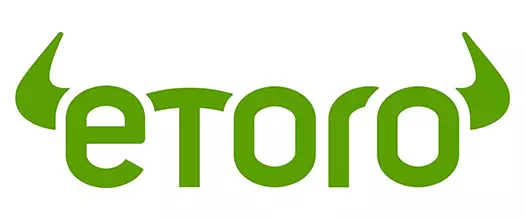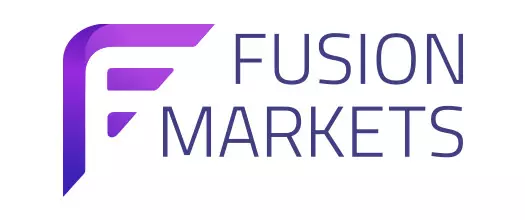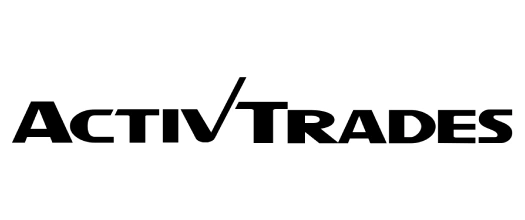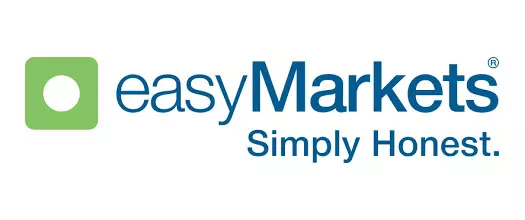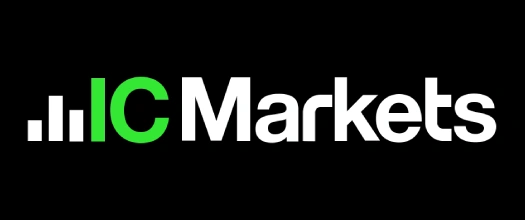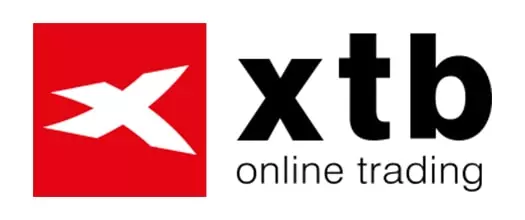Our team of expert traders has tested several regulated and trustworthy Ripple trading brokers and compiled a top list of the best among them. Each Ripple broker received a quality score based on several factors, including Trustpilot rating, regulation, fees and commissions, available trading platforms, customer service, and more.
 Plus500 USThis content applies only to Plus500 US and clients from the United States. Trading futures involves the risk of loss.
Plus500 USThis content applies only to Plus500 US and clients from the United States. Trading futures involves the risk of loss. eToro61% of retail investor accounts lose money
eToro61% of retail investor accounts lose money Fusion Markets74-89% of retail's CFD accounts lose money
Fusion Markets74-89% of retail's CFD accounts lose money FP Markets73.85% of retail investor accounts lose money
FP Markets73.85% of retail investor accounts lose money Global Prime74-89% of retail CFD accounts lose money
Global Prime74-89% of retail CFD accounts lose money Pepperstone75.5% of retail investor accounts lose money
Pepperstone75.5% of retail investor accounts lose money
Top ten XRP trading brokers
Based on the factors mentioned above, we have prepared a list of 10 high-performing XRP trading brokers that put traders in the best position to trade XRP profitably.
 TRADE NOWREAD REVIEWRegulatorsPlatformsMetaTrader 4, MetaTrader 5, Proprietary Mobile, Proprietary Web1. PepperstoneMin Deposit$0Fees
TRADE NOWREAD REVIEWRegulatorsPlatformsMetaTrader 4, MetaTrader 5, Proprietary Mobile, Proprietary Web1. PepperstoneMin Deposit$0Fees- No deposit and withdrawal fees;
- No account maintenance and inactivity fees
Deposit MethodsCommissionsNone (for standard accounts)SpreadEUR/USD: AVG 1.1 pips, GBP/USD: AVG 1.3 pips, USDJPY: AVG 1.3 pipsWithdrawal MethodsLeverage EU1:500 (CySEC | Pro Account), 1:30 (CySEC | Retail Account), 1:30 (FCA | Retail Account)Leverage non-EU1:500 (SCB | Pro Account), 1:30 (ASIC | Retail Account), 1:30 (DFSA | Retail Account), 1:200 (SCB | Retail Account)InstrumentsCommodity CFDs, Crypto CFDs, Energy CFDs, Forex CFDs, Index CFDs, Metal CFDs, Stock CFDs*Spread bets and CFDs are complex instruments and come with a high risk of losing money rapidly due to leverage. 74.7% of retail investor accounts lose money when trading spread bets and CFDs with this provider. You should consider whether you understand how spread bets and CFDs work and whether you can afford to take the high risk of losing your money.Launched in 2010 in Australia, Pepperstone is an ASIC-regulated broker, delivering first-class trading services to novice and experienced traders alike. Over the years, it has grown to become one of the largest Forex and CFD brokers across the globe. As a competitive brand, it offers trading on a wide array of financial instruments, including Forex, metals, and commodities, among others.
The brand also excels in the cryptocurrency department, offering trading in more than 20 different crypto assets. Spreads vary by instrument, and, as far as trading XRP is concerned, the minimum starts at 0.0024, while the average reaches 0.0081.
Pepperstone has obtained trading licenses from several renowned financial institutions around the globe, including the UK Financial Conduct Authority and the Australian Securities and Investments Commission.
The allowable leverage also varies according to the financial instrument and the type of trading account. Retail customers in the EU can use a leverage ratio of 1:2 for their XRP trades. Pepperstone offers a multitude of platforms to choose from, including the popular MT4, MT5, and cTrader.
With regard to the available payment methods, customers can choose from a number of convenient options, including card payments and various e-wallets.
Overall, Pepperstone is a high-performing brokerage platform, delivering excellent trading conditions, a user-friendly interface, and cutting-edge technological solutions.
 TRADE NOWREAD REVIEWRegulatorsCySEC (Cyprus, # 109/10), FCA (United Kingdom, # 583263), FRSA (United Arab Emirates, # 220073), FinCEN (United States, # 31000204884179), FINRA (United States, # 298361), FSAS (Seychelles, # SD076), GFSC (Gibraltar, # 1333B), AMF (France, # E2022-038), MFSA (Malta, # C97952), SEC (United States, # 0001753042), ASIC (Australia, # 491139)PlatformseToro App, eToro CopyTrader, eToro Investing2. eToroMin Deposit$50 or $100 based on country ($10 for the UK)Fees
TRADE NOWREAD REVIEWRegulatorsCySEC (Cyprus, # 109/10), FCA (United Kingdom, # 583263), FRSA (United Arab Emirates, # 220073), FinCEN (United States, # 31000204884179), FINRA (United States, # 298361), FSAS (Seychelles, # SD076), GFSC (Gibraltar, # 1333B), AMF (France, # E2022-038), MFSA (Malta, # C97952), SEC (United States, # 0001753042), ASIC (Australia, # 491139)PlatformseToro App, eToro CopyTrader, eToro Investing2. eToroMin Deposit$50 or $100 based on country ($10 for the UK)Fees- Conversion fee applicable to non-USD deposits and withdrawals;
- Withdrawals are charged with a 5% fee;
- 1% fee for buying or selling cryptocurrency;
- Inactivity fee charged after a year of no login
Deposit MethodsCommissions1% fee for buying cryptocurrenciesSpreadEUR/USD: AVG 1 pips, GBP/USD: AVG 2 pips, USDJPY: AVG 1 pipsWithdrawal MethodsLeverage EU1:400 (CySEC | Pro Account), 1:30 (CySEC | Retail Account)Leverage non-EU1:400 (FSAS | Retail Account)InstrumentsCommodity CFDs, Crypto CFDs, ETF CFDs, Forex CFDs, Index CFDs, Metal CFDs, Share CFDs, Stock CFDs, US Stock CFDsCrypto investments are risky and may not suit retail investors; you could lose your entire investment. Understand the risks here.eToro is a well-established trading platform, operating since 2007. The company focuses on providing quality financial and copy-trading services. As a multi-asset platform, it offers an excellent trading environment and is among the trading brokers that deliver a truly diverse range of crypto-trading options.
As a global provider of financial services, eToro has obtained certificates from renowned regulatory bodies within the industry, namely the FCA and CySEC.
Besides the option to trade individually or through copy trading, customers of the platform can become a Popular Trader and thus generate additional income. The conditions for becoming a Popular Trader include depositing a minimum of $1,000 into one’s trading account.
Over the years, eToro has expanded its product offering to include a diverse range of currency pairs, ETFs, indices, commodities, and stocks. Regarding cryptocurrencies, traders have many options, including XRP. Customers based in the EU can take advantage of greater market exposure by using leverage for crypto assets, which is limited to 1:2.
Funding a trading account can be accomplished through several payment methods available on the platform. Customers can choose between credit and debit cards, e-wallets, and bank transfers. The minimum allowable withdrawal amount is set at $50, and a withdrawal fee of $5 applies. eToro’s app is available for download on Google Play and Apple’s App Store.
 TRADE NOWREAD REVIEWRegulatorsCONSOB (Italy, # 211), FCA (United Kingdom, # 434413), SCB (Bahamas, # 199667 B), CMVM (Portugal, # 433), FSCM (Mauritius, # GB24203277), CVM (Brazil, # 43050.917/0001-03)PlatformsMetaTrader 4, MetaTrader 5, Proprietary Web, TradingView3. ActivTradesMin Deposit$0Fees
TRADE NOWREAD REVIEWRegulatorsCONSOB (Italy, # 211), FCA (United Kingdom, # 434413), SCB (Bahamas, # 199667 B), CMVM (Portugal, # 433), FSCM (Mauritius, # GB24203277), CVM (Brazil, # 43050.917/0001-03)PlatformsMetaTrader 4, MetaTrader 5, Proprietary Web, TradingView3. ActivTradesMin Deposit$0Fees- 0.5% on deposits (EU/EEA cards)
- 1.5% on deposits (non EU/EEA cards)
- $12.50 for bank transfer withdrawals in USD
- £9 for bank transfers in GBP (SCB and FSC entities only)
- A $10 inactivity fee after 50 weeks
Deposit MethodsCommissionsNone on crypto CFDsSpreadEUR/USD: AVG 0.5 pips, GBP/USD: AVG 0.8 pips, USDJPY: AVG 0.5 pipsWithdrawal MethodsLeverage EU1:2 (1:20 for Pro accounts)Leverage non-EU1:400 (CMVM | Pro Account), 1:30 (CMVM | Retail Account), 1:1000 (FSC), 1:200 (SCB)InstrumentsBonds CFDs, Commodity CFDs, Crypto CFDs, ETF CFDs, Forex CFDs, Index CFDs, Share CFDsCFDs are complex instruments and come with a high risk of losing money rapidly due to leverage. 73% of retail investor accounts lose money when trading CFDs with this provider.You should consider whether you understand how CFDs work and whether you can afford to take the high risk of losing your money.ActivTrades ranks among the top global brokers for cryptocurrency trading, known for its favorable conditions and transparent pricing. Since its establishment in 2001, the broker has expanded its offerings to include digital assets and now provides access to 15 cryptocurrencies, including popular coins such as Ripple. Other popular crypto trading assets at ActivTrades include Bitcoin, Bitcoin Cash, Dogecoin, Solana, and Ethereum.
Traders can access the cryptocurrency market through contracts for difference (CFDs) without the need to set up a digital wallet. Ripple and other digital assets are traded against the U.S. dollar, allowing traders to potentially profit from both rising and falling market conditions.
The target spread for the XRPUSD pair, as listed on the broker’s website, is 0.0040 points. Currently, swap rates for overnight positions are set at 5 for short positions and -18 for long positions. Leverage is capped at 1:2 for EU clients and 1:10 for customers registered under the company’s Mauritius and Bahamas entities. According to ActivTrades’ Ripple contract specifications, crypto traders can place orders with a minimum volume of 1 lot and a maximum volume of 30,000 lots.
- 4. AxiMin Deposit$0Fees
- No deposit and withdrawal fees;
- $10 Inactivity fee after one year of no login activity;
CommissionsNone for standard accountsSpread0.35Leverage EU1:5Leverage non-EU1:30*CFDs are complex instruments and come with a high risk of losing money rapidly due to leverage. 74.1% of retail investor accounts lose money when trading CFDs with this provider. You should consider whether you understand how CFDs work and whether you can afford to take the high risk of losing your money.Founded in 2007 in Sydney, Australia, Axi has become a global leader in the trading industry. Operating under the regulatory oversight of financial authorities such as the Financial Conduct Authority and the Australian Securities and Investments Commission, Axi is widely recognized as a trustworthy platform.
Bitcoin, Ethereum, XRP, Litecoin, Bitcoin Cash, and many other crypto assets are available for trading 24/7. The platform enables traders to trade both spot crypto and crypto CFDs. The choice between the two depends on traders’ financial goals and risk tolerance. While crypto spot assets are better suited for long-term investments, crypto CFDs are more appropriate for short-term trading. Axi traders stay well-informed about developments in the crypto market through the blog and news feed available on the platform.
Inexperienced traders have a demo account at their disposal, with $50,000 in virtual funds for a free 30-day trial. The main trading platform provided by the broker is MT4. It is easy for novice traders to navigate and is packed with advanced features for professionals. The supplemental MT4 NextGen software offers even more functionality.
With spreads for cryptocurrencies starting at 0.35 and zero commissions, Axi provides a highly competitive environment for trading digital assets and other financial instruments. PsyQuation is an excellent trading tool available free of charge to all Axi customers, helping them minimize the risks they take.
Credit and debit cards, Neteller, Skrill, and bank wires are among the available methods for funding an account.
 TRADE NOWREAD REVIEWRegulatorsCIRO (Canada), CySEC (Cyprus, # 347/17), FRSA (United Arab Emirates, # 190018), FFAJ (Japan, # 1574), FSCA (South Africa, # 45984), FSRA (Canada, # 190018), ISA (Israel, # 514666577), JFSA (Japan, # 1662), ASIC (Australia, # 406684), BVIFSC (Virgin Islands, British, # SIBA/L/13/1049), CBI (Ireland, # C53877)PlatformsAvaOptions, DupliTrade, AvaSocial, MetaTrader 4, MetaTrader 5, AvaTadeGO, Proprietary Web, ZuluTrade5. AvaTradeMin Deposit$100FeesNo deposit and withdrawal feesDeposit MethodsCommissionsNoneSpreadEUR/USD: AVG 0.8 pips, GBP/USD: AVG 1.2 pips, USDJPY: AVG 1.3 pipsWithdrawal MethodsLeverage EU1:2Leverage non-EU1:400 (Pro Account), 1:30 (Standard Account)InstrumentsBonds CFDs, Commodity CFDs, Crypto CFDs, Crypto Options, Energy CFDs, ETF CFDs, Forex CFDs, Forex Options, Index CFDs, Index Options, Metal CFDs, Share CFDs, Stock CFDs, Stock Options, US Stock Options*CFDs are complex instruments and come with a high risk of losing money rapidly due to leverage. 71% of retail investor accounts lose money when trading CFDs with this provider. You should consider whether you understand how CFDs work and whether you can afford to take the high risk of losing your money.
TRADE NOWREAD REVIEWRegulatorsCIRO (Canada), CySEC (Cyprus, # 347/17), FRSA (United Arab Emirates, # 190018), FFAJ (Japan, # 1574), FSCA (South Africa, # 45984), FSRA (Canada, # 190018), ISA (Israel, # 514666577), JFSA (Japan, # 1662), ASIC (Australia, # 406684), BVIFSC (Virgin Islands, British, # SIBA/L/13/1049), CBI (Ireland, # C53877)PlatformsAvaOptions, DupliTrade, AvaSocial, MetaTrader 4, MetaTrader 5, AvaTadeGO, Proprietary Web, ZuluTrade5. AvaTradeMin Deposit$100FeesNo deposit and withdrawal feesDeposit MethodsCommissionsNoneSpreadEUR/USD: AVG 0.8 pips, GBP/USD: AVG 1.2 pips, USDJPY: AVG 1.3 pipsWithdrawal MethodsLeverage EU1:2Leverage non-EU1:400 (Pro Account), 1:30 (Standard Account)InstrumentsBonds CFDs, Commodity CFDs, Crypto CFDs, Crypto Options, Energy CFDs, ETF CFDs, Forex CFDs, Forex Options, Index CFDs, Index Options, Metal CFDs, Share CFDs, Stock CFDs, Stock Options, US Stock Options*CFDs are complex instruments and come with a high risk of losing money rapidly due to leverage. 71% of retail investor accounts lose money when trading CFDs with this provider. You should consider whether you understand how CFDs work and whether you can afford to take the high risk of losing your money.Launched in 2006, AvaTrade is a widely popular trading platform dedicated to integrity and continuous innovation. Whether in fees and spreads, trading platforms and functionality, or regulatory licenses, AvaTrade has occupied a leading position in the global financial market since its inception.
Ripple’s XRP is among AvaTrade’s cryptocurrency trading instruments. With typical over-market spreads of 1% and leverage of up to 1:2 for retail customers, traders can actively participate in this thrilling crypto market. Much like other cryptocurrencies, the price of Ripple’s XRP is governed by market supply and demand as well as overall speculative activity. Traders can take advantage of trading news and analysis available to registered users.
As for trading platforms, customers can choose from several options: web trading, AvaTradeGO, MetaTrader 4, and MetaTrader 5.
Exclusively offered by AvaTrade, AvaProtect is a powerful risk-management tool that enables traders to get their money back on losing trades. This feature allows customers to protect specific trades against losses.
Regarding safety and regulation, the internationally recognized brand holds licenses from several financial authorities, including the Cyprus Securities and Exchange Commission, the Australian Securities and Investments Commission, and the Israel Securities Authority, among others.
- 6. IQ OptionMin Deposit€20Fees
- An inactivity fee of $10 if for a period of 3 or more months the client does not place orders or make trades;
- Overnight fee set at 0.01% - 0.5% of the face value of the position
Commissions2.9% for opening a ‘long’ cryptocurrency positionSpreadAverage at around 2 pipsLeverage EU1:2Leverage non-EUN/A*CFDs are complex instruments and come with a high risk of losing money rapidly due to leverage. 83% of retail investor accounts lose money when trading CFDs with this provider. You should consider whether you understand how CFDs work and whether you can afford to take the high risk of losing your money.IQ Option is another leading trading brand, offering ideal conditions for trading Forex, stock CFDs, commodities, and cryptocurrencies, all of which are traded as CFDs. Offering a variety of trading instruments for both inexperienced and seasoned traders, the brand provides favorable opportunities for an excellent trading experience. The company features a proprietary trading platform.
Customers from more than 30 countries enjoy fair and transparent conditions. IQ Option operates under the regulation of CySEC in Cyprus.
IQ Option has added Bitcoin, Ethereum, Ripple, and other crypto assets to its product offering. Depending on their location and the relevant financial instrument, customers can take advantage of leverage ratios ranging from 1:1 to 1:30. The maximum allowable leverage for crypto assets for customers within the EU is set at 1:2.
IQ Option’s customers can open a demo account with a $10,000 virtual balance to practice their trading strategies without risking real funds.
The brand provides a range of educational resources, including personal account managers, free access to market data, webinars, and tutorials.
 TRADE NOWREAD REVIEWRegulatorsCySEC (Cyprus, # 079/07), FSAS (Seychelles, # SD056), FSCA (South Africa, # 54018), ASIC (Australia, # 246566), BVIFSC (Virgin Islands, British, # SIBA/L/20/1135)PlatformsMetaTrader 4, MetaTrader 5, Proprietary Mobile, Proprietary Web, TradingView7. easyMarketsMin Deposit$25 ($2,000 for MT4 Premium, $10,000 for MT4 VIP)FeesNo deposit and withdrawal feesDeposit MethodsCommissionsNoneSpreadEUR/USD: MIN 0.8 pips, EUR/USD: AVG 0.7 pips, GBP/USD: MIN 1.4 pips, GBP/USD: AVG 0.9 pips, USDJPY: MIN 1.5 pips, USDJPY: AVG 2 pipsWithdrawal MethodsLeverage EU1:500 (CySEC | Pro Account), 1:30 (CySEC | Retail Account)Leverage non-EU1:500 (ASIC | Pro Account), 1:30 (ASIC | Retail Account), 1:2000 (FSAS | Retail Account)InstrumentsCommodity CFDs, Crypto CFDs, Forex CFDs, Forex Forwards, Forex Options, Index CFDs, Metal CFDs, Metal Options, Share CFDs*CFDs and Options are complex instruments and come with a high risk of losing money rapidly due to leverage. 61% of retail investor accounts lose money when trading CFDs with this provider. You should consider whether you understand how CFDs and Options work and whether you can afford to take the high risk of losing your money.
TRADE NOWREAD REVIEWRegulatorsCySEC (Cyprus, # 079/07), FSAS (Seychelles, # SD056), FSCA (South Africa, # 54018), ASIC (Australia, # 246566), BVIFSC (Virgin Islands, British, # SIBA/L/20/1135)PlatformsMetaTrader 4, MetaTrader 5, Proprietary Mobile, Proprietary Web, TradingView7. easyMarketsMin Deposit$25 ($2,000 for MT4 Premium, $10,000 for MT4 VIP)FeesNo deposit and withdrawal feesDeposit MethodsCommissionsNoneSpreadEUR/USD: MIN 0.8 pips, EUR/USD: AVG 0.7 pips, GBP/USD: MIN 1.4 pips, GBP/USD: AVG 0.9 pips, USDJPY: MIN 1.5 pips, USDJPY: AVG 2 pipsWithdrawal MethodsLeverage EU1:500 (CySEC | Pro Account), 1:30 (CySEC | Retail Account)Leverage non-EU1:500 (ASIC | Pro Account), 1:30 (ASIC | Retail Account), 1:2000 (FSAS | Retail Account)InstrumentsCommodity CFDs, Crypto CFDs, Forex CFDs, Forex Forwards, Forex Options, Index CFDs, Metal CFDs, Metal Options, Share CFDs*CFDs and Options are complex instruments and come with a high risk of losing money rapidly due to leverage. 61% of retail investor accounts lose money when trading CFDs with this provider. You should consider whether you understand how CFDs and Options work and whether you can afford to take the high risk of losing your money.EasyMarkets is a well-established financial services brand that has been operating for more than 20 years. Since its inception, the easyMarkets team has been dedicated to delivering the best customer experience in terms of services, trading tools, and pricing. Innovation has always been at the forefront of the company’s values.
The company is regulated by CySEC in Cyprus, ASIC in Australia, and the British Virgin Islands Financial Services Commission, ensuring that it meets all necessary security requirements. Overall, the brand enjoys a great deal of trust from both novice and experienced traders alike.
While an unlimited demo account is available to easyMarkets’ customers, the initial deposit required to start trading is set at $100. Clients can also take advantage of free, guaranteed stop-loss and take-profit orders.
EasyMarkets offers Ripple’s XRP as part of its cryptocurrency trading portfolio. XRP-trading customers can also benefit from the Freeze Rate tool, which gives them a few seconds to execute a trade while the asset’s price is frozen – particularly useful in the highly volatile crypto market.
In addition to its low minimum deposit requirement, the broker does not charge fees for deposits or withdrawals. As a zero-commission broker, easyMarkets generates revenue by charging fixed spreads; for XRP trading, spreads start from $0.004.
The trading platforms offered by the company include its proprietary platform, a web-based platform, and MetaTrader 4.
- 8. AdmiralsMin Deposit$100Fees
- No deposit and withdrawals fees;
- Inactivity fee charged after one year of no trading activity
CommissionsNoneSpread- Minimum spread: 1%
- Typical spread: 1%
Leverage EU1:2Leverage non-EU1:2*CFDs are complex instruments and come with a high risk of losing money rapidly due to leverage. 81% of retail investor accounts lose money when trading CFDs with this provider. You should consider whether you understand how CFDs work and whether you can afford to take the high risk of losing your money.Admirals deservedly occupies a position in our best-in-class list of XRP trading brokers. Since its launch in 2001, the brand has been among the most dependable in the online trading industry. Admirals is authorized to provide financial services by a number of renowned regulatory bodies, including the UK Financial Conduct Authority and the Australian Securities and Investments Commission.
A full range of MetaTrader platforms (MT4, MT5, MetaTrader WebTrader, and MetaTrader Supreme Edition) is available to traders who open an account with this operator.
By opening an account at Admirals, traders gain access to a wide array of trading instruments, including more than 50 forex pairs, 40+ indices, 25+ commodities, 3,000+ stocks and shares, and over 30 cryptocurrencies, among others.
Trading fees at Admirals are kept to a minimum. The platform profits from spreads, which are clearly detailed. Those for XRP trading start at 1%. The maximum allowable leverage for trading crypto assets is limited to 1:2, in accordance with the rules set by the European Securities and Markets Authority.
With a minimum deposit of $100, traders can start exploring the opportunities offered by the various markets. The platform accepts a decent range of payment options, including card payments, bank transfers, and several digital wallets.
- 9. IC MarketsMin Deposit$200Fees
- No deposit and withdrawal fees;
- No account inactivity fees
Deposit MethodsCommissionsNone for Standard AccountsSpreadEUR/USD: AVG 0.82 pips, GBP/USD: AVG 1.03 pips, USDJPY: AVG 0.94 pipsWithdrawal MethodsLeverage EU1:500 (CySEC | Pro Account), 1:30 (CySEC | Retail Account)Leverage non-EU1:1000 (FSAS | Retail Account)InstrumentsCommodity CFDs, Crypto CFDs, Energy CFDs, Forex CFDs, Index CFDs, Metal CFDs, Stock CFDs*CFDs are complex instruments and come with a high risk of losing money rapidly due to leverage. 75.93% of retail investor accounts lose money when trading CFDs with this provider. You should consider whether you understand how CFDs work and whether you can afford to take the high risk of losing your money.Based in Sydney, Australia, IC Markets is a respected, longstanding, web-based provider of trading services, operating under ASIC regulation. Certificates from other regulators, including CySEC and the FSA, are also available.
The company provides its customers with a choice of three trading platforms – MetaTrader 4, MetaTrader 5, and cTrader.
Since its inception, the company’s mission has been to provide traders with competitive spreads and a diverse range of trading tools, helping them improve results and reduce the risks associated with trading. The company has invested in superior technology, and traders can take advantage of tools such as Depth of Market, built-in spread monitoring, and automated trade closing, among others.
Furthermore, the trading platform features many video tutorials, articles, and guides, all designed to facilitate the trading process. The option to open a demo account is available, and once ready, traders need to deposit $200 to start live trading.
The range of markets that can be traded on the platform includes forex (more than 60 currency pairs), indices (25 from across the globe), commodities, stocks, bonds, and, last but not least, crypto.
The operator offers 21 popular cryptocurrencies that can be traded 24/7, including the well-known XRP. The variety of crypto assets is a significant advantage in the operator’s favor.
 TRADE NOWREAD REVIEWRegulatorsCNMV (Spain, # 40), CySEC (Cyprus, # 169/12), DFSA (United Arab Emirates, # F006316), FCA (United Kingdom, # 522157), FSCA (South Africa, # 49970), FSAN (Norway, # FT00118162), IFSC (Belize, # 000302/11), KNF (Poland), BaFin (Germany)PlatformsxStation 510. XTBMin Deposit$250Fees
TRADE NOWREAD REVIEWRegulatorsCNMV (Spain, # 40), CySEC (Cyprus, # 169/12), DFSA (United Arab Emirates, # F006316), FCA (United Kingdom, # 522157), FSCA (South Africa, # 49970), FSAN (Norway, # FT00118162), IFSC (Belize, # 000302/11), KNF (Poland), BaFin (Germany)PlatformsxStation 510. XTBMin Deposit$250Fees- No deposit and withdrawal fees;
- $10 inactivity fee per month after 1 year of inactivity;
- 0.5% currency conversion fee
Deposit MethodsCommissionsNone for Standard AccountsSpreadEUR/USD: AVG 0.9 pips, GBP/USD: AVG 2.2 pips, USDJPY: AVG 1.4 pipsWithdrawal MethodsLeverage EU1:200 (CySEC | Pro Account), 1:30 (CySEC | Retail Account), 1:30 (FCA | Retail Account)Leverage non-EU1:500 (IFSC | Retail Account)InstrumentsCommodity CFDs, Crypto CFDs, Energy CFDs, ETF CFDs, Forex CFDs, Index CFDs, Metal CFDs, Share CFDs, Stock CFDs, US Stock CFDs*CFDs are complex instruments and come with a high risk of losing money rapidly due to leverage. 78% of retail investor accounts lose money when trading CFDs with this provider. You should consider whether you understand how CFDs work and whether you can afford to take the high risk of losing your money.XTB is a high-performing trading brand headquartered in Poland and founded in 2002. The company offers a diverse portfolio of more than 2,100 trading tools from two platforms – a native platform, xStation 5, and a standard one, MT4. xStation 5 is fully customizable, offers many advanced features, and is ideally suited for advanced investors. Operating in 13 countries, the broker serves the trading needs of both individual and professional traders.
XTB is authorized and regulated by the UK’s Financial Conduct Authority. With multiple awards to its name, the broker has earned the trust and loyalty of more than 490,000 active users worldwide.
XTB offers a wide range of educational and analytical materials for traders of all experience levels. A demo account is available for a trial period of 30 days. The broker’s product offering is similarly diverse, with more than 50 currency pairs, over 1,500 company shares, indices, commodities, ETFs, and 25 cryptocurrencies.
The fees offered by the broker are competitive, and there is no minimum deposit required to open a trading account. There are no deposit or withdrawal fees; however, an inactivity fee of $10 is charged after 12 months without trading activity. Currency conversion fees amount to 0.5%. Spreads are competitive, with XRP spreads ranging between 2.5% and 3%.
XTB also has a user-friendly mobile application, available for Android and iOS users. Customer support is friendly and knowledgeable and can be reached through various channels.
The international financial system has undeniably been impacted by the rise of cryptocurrencies over the past decade. For those who are not familiar with the ins and outs of the world of crypto investing, it may seem that all profitable investment opportunities are limited to Bitcoin. Indeed, as the original and best-known cryptocurrency, and the largest by market cap, Bitcoin remains the market leader.
However, there are many other alternatives with excellent investment potential that provide favourable conditions for diversifying one’s trading portfolio. Ripple’s XRP is one such option. Before we move on to the aspects of XRP that interest traders, we will briefly mention some intriguing facts about this cryptocurrency, which is increasingly gaining traction.
Ripple is the name of the fintech company that launched the XRP cryptocurrency, its native token, in 2012. Many people use XRP and Ripple interchangeably when referring to the cryptocurrency. The network underpinning the cryptocurrency is RippleNet (RTXP), which is designed to facilitate global transactions.
The developers’ main idea was not to compete with other cryptocurrencies and fiat currencies, but rather to provide greater economic opportunities for businesses and financial institutions around the globe. With the ability to transform the way we perceive currency transfers, this crypto asset is increasingly attracting the attention of international banking institutions and has become one of the most popular altcoins.
The Ripple network serves as the medium through which assets are transferred between two entities. To complete the transfer, a small amount of XRP is required; it is not used as a reward for either party. Unlike Bitcoin and Ethereum, which can be exchanged for goods and services, Ripple serves as a channel for processing transactions. The crypto asset acts as a bridge, securing instant, safe, and low-cost transfers.
This publication focuses on the essence of Ripple, the specifics of trading it, and presents a list of the best XRP trading brokers.
How XRP trading works for traders and brokers
Now that we have established the major characteristics of Ripple’s XRP, we can approach the topic from both traders’ and brokers’ perspectives. The fact that XRP ranks among the largest crypto assets by market capitalisation has encouraged many brokers to include it in their product offerings and many traders to explore its potential. Much like other cryptos, XRP is highly volatile, making it a particularly appealing option for day traders.
How XRP trading works for traders
In the following lines we outline the key steps for trading XRP.
- The first step traders should take is to open an account with an XRP Trading Broker. The process takes very little time to complete.
- Next, traders must verify their accounts in line with the requirements of the financial authority that regulates the XRP trading broker. The Know Your Customer (KYC) procedures usually take no more than 24 hours.
- The next step is to fund the trading account. Traders should choose a convenient payment method to transfer funds so that they can start trading.
- Finally, they are ready to start trading. Choosing a strategy that fits one’s trading style and goals is another important step along the way.
How XRP trading works for brokers
- XRP can be obtained directly from an exchange. By doing so, individuals own the actual cryptocurrency. This can be regarded as a long-term strategy for investing in Ripple’s native token, aiming to profit from its price increases.
- Instead of buying XRP, many traders prefer to invest in the digital currency through Contracts for Difference (CFDs) offered by trustworthy XRP trading brokers. CFDs are contracts, typically between financial institutions (brokers) and investors (traders), that enable the latter to trade a particular asset without actually owning it.
What traders do is speculate on price fluctuations, both increases and decreases. They can either hold a long position (assuming that XRP’s price will rise) or a short position (speculating that XRP’s price will fall).
XRP trading brokers can be compared using various criteria. When compiling the list of 10 top-ranking operators that offer Ripple’s XRP, we took into consideration the parameters below:
- Trading fees, commissions, and spreads
- Maximum allowable leverage for trading in XRP
- Regulatory bodies
- A range of trading tools offered by the platform
- Customer support
- Payment methods
- Minimum deposits to open a trading account

